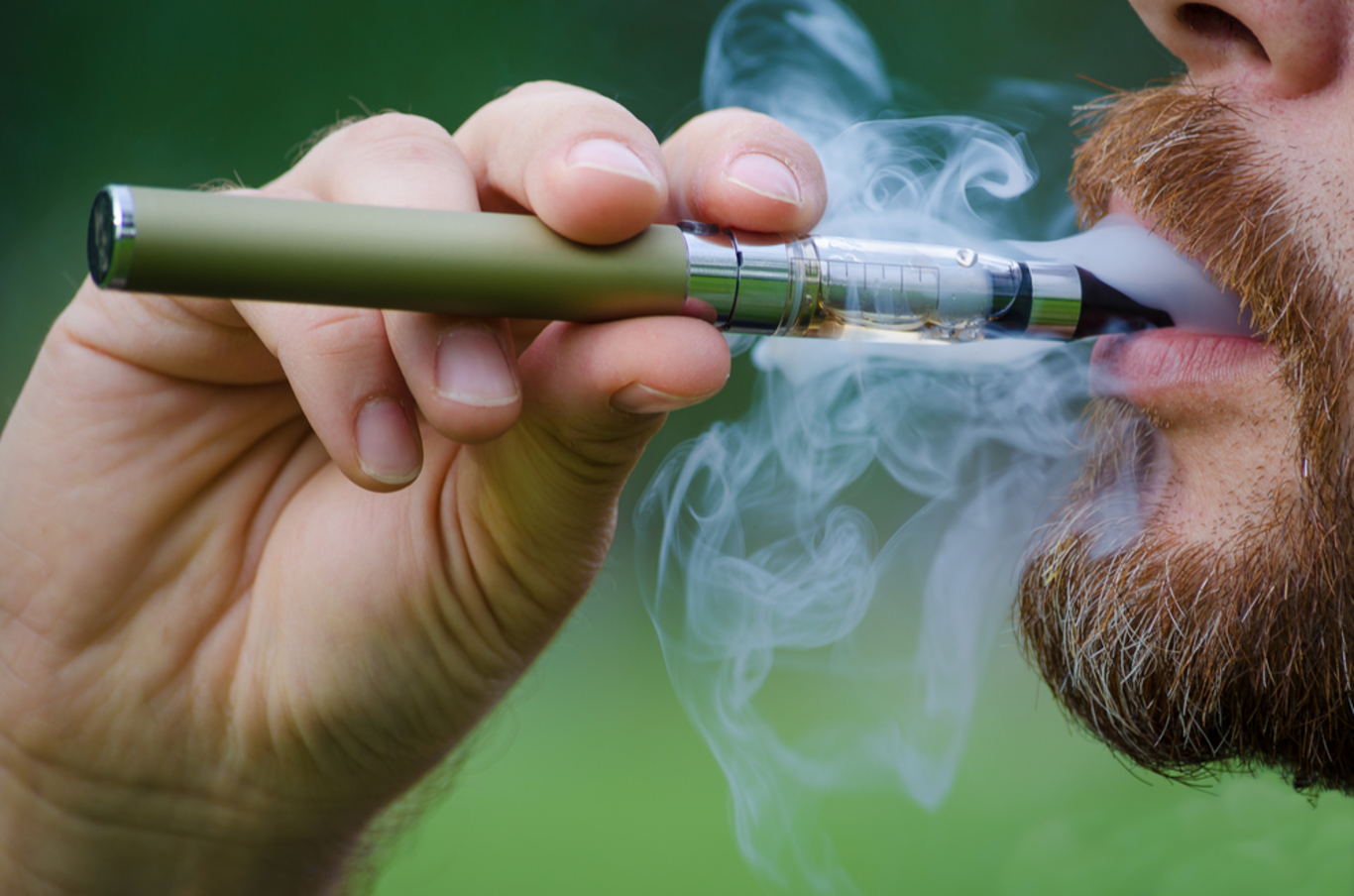Irish vape businesses step up lobbying as the spectre of an indoor e-cigarette ban looms
The World Health Organisation could call for tighter controls on the products after a conference next week.
THE IRISH VAPING industry is stepping up its lobbying efforts amid fears the World Health Organisation is poised to take a tough line on e-cigarettes, spurring tighter regulation of the sector.
At a week-long anti-tobacco conference in India next week, the WHO will present several proposals aimed at controlling the importation, sale and distribution of e-cigarettes.
The potential measures include a string of moves to regulate the vaping industry, including a ban on the use of e-cigarettes “in indoor spaces or at least where smoking is not permitted”.
In response to the anticipated crackdown, representatives from the Irish vaping sector have already started lobbying public officials in an effort to ensure that the use of the products isn’t more tightly regulated in the Republic.
Vape Business Ireland (VBI) held a breakfast briefing during the week targeted at public officials, including Oireachtas members such as TDs and senators.
Damage
Speaking to Fora at the briefing, VBI secretariat Lucy Cronin said that the body is afraid that the WHO will damage the e-cigarette industry in Ireland.
“I hope that they wouldn’t be suggesting a ban this time around. I don’t think it’s beyond the bounds of possibility that (Irish officials) would use a WHO position to justify a ban,” she said.
Cronin added that a possible outcome from the WHO conference was a draft protocol, which member states would need to ratify before it became official policy at the organisation.
“We’re not going to see something next week or the week after that will say vaping products are now banned, it’s a longer process,” she said.
“I would really hope that the WHO would examine all of the evidence and consumer behavior before they adopt a full position on things.”
Quitting aid?
E-cigarettes have been pushed by the industry as an aid to quit or reduce smoking.
The products have been endorsed by Public Health England (PHE), an agency of Britain’s Department of Health. It claimed last year that e-cigarettes could be up to 20 times safer than traditional tobacco cigarettes.
 E-cigarettes
E-cigarettes
But several influential bodies, most notably the WHO, have discouraged use of vaping products and recommended that smokers who are looking to quit instead stick to alternative nicotine replacements such as patches, lozenges and gums.
Regulations have already been put in place to deal with e-cigarettes under an EU directive for tobacco and ‘related products’, which has been implemented by Ireland.
The rules place several restrictions on e-cigarettes, such as severely restricting marketing of the devices.
For its part, the Irish government has also started to regulate the sector.
In an answer to a parliamentary question in June, the new Minister of State for Health Promotion, Marcella Corcoran Kennedy, noted “vaping is a relatively new occurrence” but the government had already moved to license retail sales of the products while restricting purchases to those over 18.
“The market share for electronic cigarettes and refill containers is growing and, as such, the long-term effects of vaping on public health are not yet known,” she said.
“My department will continue to monitor existing and emerging evidence on the potential harms and potential benefits of vaping, so as to inform any future decisions in this area.”
However, the WHO recommendations would go a step further. As well as a possible indoor ban, the rules could also prohibit claims about the effectiveness of e-cigarettes “as smoking cessation aids unless a specialised governmental agency has approved them”.
Over regulate
Vape Business Ireland previously said that the recommendations, if implemented, would “effectively over regulate the category to such an extent, that vaping products would no longer be a viable alternative to smoking”.
A spokeswoman for the Department of Health told Fora that any recommendations from the WHO will be considered as part of the ongoing process of checking evidence of vaping products’ harms and benefits.







